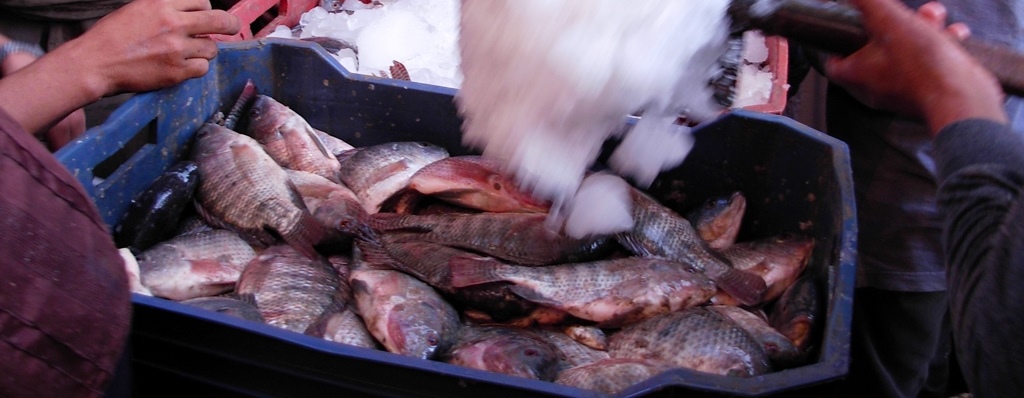Fish Retailer Baseline Survey
Description
The IEIDEAS project, funded by the Swiss Agency for Development and Cooperation and managed by WorldFish and CARE in collaboration with the Ministry of Agriculture and Land Reclamation, has focused on the development of the Egyptian aquaculture value chain. In 2011, SDC and WorldFish conducted a value chain assessment. The study proved that the aquaculture industry supplied approximately 60% of the country’s fish, providing affordable animal-sourced protein for Egyptian consumers, and supported at least 100,000 jobs for fish farmers, input suppliers (hatcheries and feed mills), wholesalers and retailers.
The project objectives are:
- The IEIDEAS project has focused on the following objectives:
- Increase aquaculture-related employment by 10,000 jobs.
- Increase net income by $8.8 million.
- Extend project benefits to 2,000 fish farmers, 100 wholesalers and 900 retailers.
- Maintain or enhance access to quality fish for low-income consumers.
NSCE conducted the baseline study and Knowledge, Attitudes, and Practices (KAP) study of the project which aims at providing quantitative and qualitative information on the current situation of the project’s target group before the startup of the project through combination of secondary data desk review and primary data collection in form of questionnaires, key informant interviews and focus group discussions with as target group fish retailers.
The results of the study are meant to be used and compared with following assessment/evaluation in order to track the performance and impact of the project. Hence, the study documents existing economic and social conditions among male and female fish retailers in the five project governorates.
Services
- Literature review: Conducted a review of all the project documents and other relevant reports and studies for the purpose of the survey instruments design.
- Research instruments: developed quantitative and qualitative research tools structured questionnaire, FGDs guidelines, in depth interviews guidelines, and individual case studies guidleines.
- Field team training: Carried out training programme for field research team on the quantitative and qualitative research technique, field survey implementation and management as well as quality control.
- Quantitative survey: implemented through interviewing 800 of the project beneficiaries and non-beneficiaries distributed over the five governorates ( Sharkia, Beheira, Kafr Elsheikh, Fayoum & Minya);
- Qualitative survey: implemented through 10 individual interviews with a number of traders, 5 focus group discussions and 5 case studies with the project’s beneficiaries.
- Data analysis: using qualitative and quantitative data analysis methods.
- Reporting on studies’ findings and recommendations.


